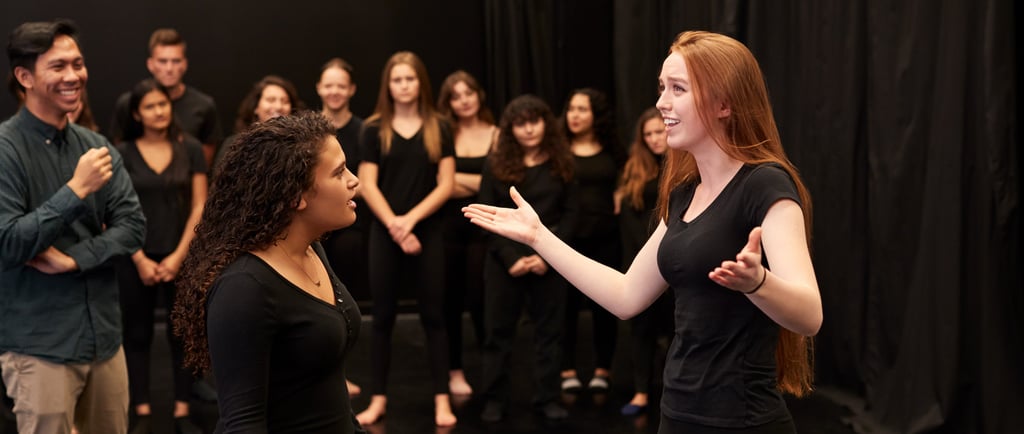Why I Use Improv Games in Every Drama Class and Rehearsal Process (And You Should Too)
Discover why improv games are essential for drama students and how to easily integrate it into your class or rehearsal. Explore benefits, practical strategies, and ready-to-use improv resources for teachers
DRAMA TEACHER RESOURCES
Katie Zakkak
7/1/20252 min read


When I was in college studying theatre, one of the most transformative experiences I had was making it onto our competitive improv team. Only about half the people who auditioned got in, so I was thrilled. But more than that, being on that team made me a better performer; every single practice and performance sharpened my skills.
Now, as a drama teacher, I bring that love of improv into every classroom and rehearsal process I run. Whether I’m teaching an intro class or directing a full-scale production, improvisation is a cornerstone of my program.
Today, I want to share:
Why I believe improv is essential
How I incorporate it
And some resources to help you get started easily
Why Improv? (Besides the Laughs)
1. Life Is Improv
Improv isn’t just a performance tool—it’s a life skill. We improvise every day: in conversations, in problem-solving, in adapting to unexpected situations. Teaching students how to do this with confidence improves:
Communication
Conflict resolution
Quick thinking (hello, job interviews!)
Empathetic listening
2. It Builds Better Actors
Improv trains students to:
Quickly step into character
Understand objectives and motivations on the fly
Respond truthfully in imaginary circumstances
Identify and heighten conflict—the heart of any scene
These skills make stronger, more adaptable performers—whether they’re doing a scripted monologue or ensemble scene work.
3. It Unlocks Creative Play
Especially early in the year, improv gives students permission to play, to tap into that childlike creativity and exploration that is at the core of acting.
When students are improvising, they’re taking risks, building trust, and letting go of the fear of “doing it wrong.” That kind of freedom is the foundation for all meaningful performance work.
How I Use Improv in Class & Rehearsal
⭐ As Warm-Ups
Short improv games are great energy boosters and focus-setters. I’ll often start class or rehearsal with a 5–10 minute improv activity to loosen up the group.
⭐ As Character Work
In rehearsals, I use improv to help actors explore their roles more deeply:
“What would your character do in this made-up situation?”
“Improvise this moment before the scene starts.”
“How would your character respond if…”
This helps students embody their characters more fully and make bold choices in their performances.
⭐ As a Full Unit
In my drama classes, I often begin the year with an Improv Unit. It sets the tone for:
Risk-taking
Collaboration
Thinking on your feet
Saying “yes, and…” to each other and the process
Want to Start Using Improv Easily?
I’ve created several low-prep, ready-to-use resources to help you bring improv into your program—whether you want a quick warm-up or a full unit:
🎭 50 Improv Games – A go-to list of student-tested games for class or rehearsal
🃏 Improv Suggestion Cards – Printable prompts with built-in lesson plans
📚 Complete Improv Unit – A deeper dive into skills, structure, and performance
Bonus - Bundle all 3 and save 20%!
All of these are designed to be easy to implement, so you can bring more play into your classroom without adding hours of prep.
Final Thoughts
Whether you use it every day or just here and there, I truly believe improvisation should be a part of every drama class and rehearsal process. The benefits stretch far beyond the stage—helping students grow as artists and as people.
So start simple. Play a game. Say “yes, and.” See what happens.
If you want to keep getting practical advice, get my free Drama Teacher Toolkit and sign up for the newsletter—packed with tips, tools, and freebies to support your season.
Happy teaching—and break a leg!
